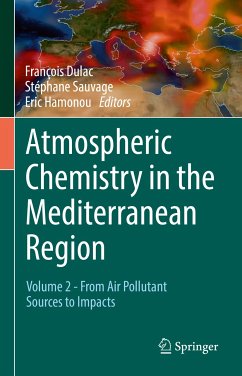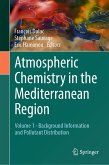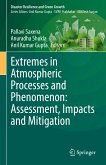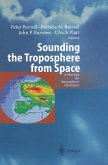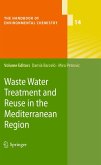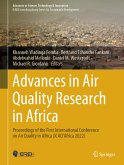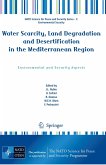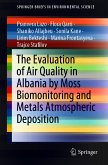This two-volume set provides an extensive review of the abundant past and recent literature on the atmospheric chemistry in the Mediterranean region. The books document the experience gained on the atmospheric composition over the Mediterranean basin and close areas after six decades of research, starting from early studies of radioactive aerosol fallouts and intense desert dust events in the 1960s, followed by studies of aerosols collected during oceanographic cruises in the early 1980s, and including subsequent knowledge from various surface monitoring stations, intensive campaigns, satellite climatologies, laboratory studies, as well as chemistry-transport and climate models. Through ten thematic sections, the authors examine the sources and fates of atmospheric pollutants over the Mediterranean basin and what we know about the main impacts of the regional atmospheric chemistry. This overview not only considers the full regional cycle of both aerosol and reactive gases including emissions, transport, transformations, and sinks, but also addresses their major impacts on air quality and health, on the radiative budget and climate, on marine chemistry and biogeochemistry . The volumes are an initiative from the ChArMEx project that has federated many studies on those topics in the 2010-2020decade, and update the scientific knowledge by integrating the ChArMEx and non-ChArMEx literature. The books are contributed by a large pool of well-known authors from the respective fields, mainly from France and Greece, but also from six other Mediterranean and eight non-Mediterranean countries. All Chapters have been peer-reviewed by international scientific experts in the corresponding domains.
Volume 2 focuses on emissions and their sources, recent progress on chemical processes, aerosol properties, atmospheric deposition, and the impacts of air pollution on human health, regional climate and ecosystems. Recommendations for future research in these fields are finally proposed. The targeted audience is the academic community working on atmospheric chemistry and its impacts, especially teams having an l interest in the Mediterranean region, which includes many countries and institutes worldwide.
Dieser Download kann aus rechtlichen Gründen nur mit Rechnungsadresse in A, B, BG, CY, CZ, D, DK, EW, E, FIN, F, GR, HR, H, IRL, I, LT, L, LR, M, NL, PL, P, R, S, SLO, SK ausgeliefert werden.

